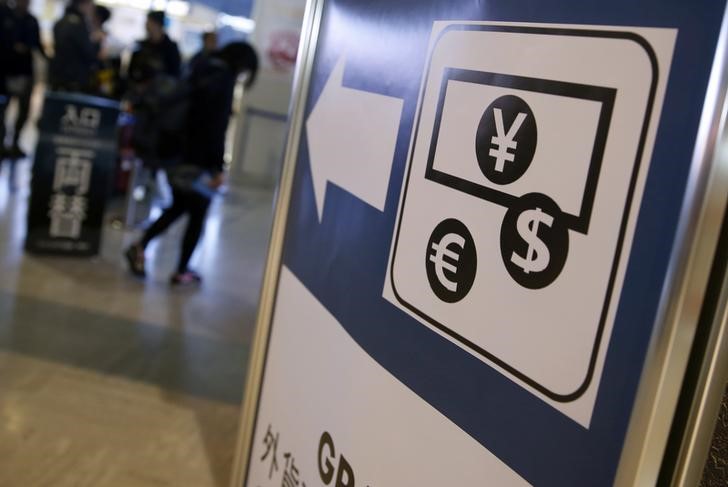* Yen falls to one-week lows vs euro and dollar
* Aussie, kiwi and loonie under pressure, commodity prices fall
* China inflation data up next
By Ian Chua
SYDNEY, May 10 (Reuters) - The yen nursed broad losses early on Tuesday, after showing its biggest one-day fall in more than two weeks on Monday, a move that should offer some comfort to Japanese authorities unhappy about its strength.
The dollar and euro both gained nearly 1 percent on the yen on Monday, reaching one-week highs of 108.60 JPY= and 123.69 EURJPY=R respectively. They were hovering just under the peaks early in Asia.
Finance Minister Taro Aso on Monday said Tokyo is ready to intervene to weaken the yen if moves are volatile enough to hurt the country's trade and economy. the bar is high for any direct market intervention, investors took heed of the warning and booked profits in the yen which hit a three-year high on the euro last Friday.
The euro was a touch softer against the greenback at $1.1385 EUR= . The dollar index .DXY drifted to its highest in nearly two weeks, extending its rise from a 15-month trough set on May 3.
"The strength in the USD appears to have been driven by a reversal in positioning," analysts at National Australia Bank wrote in a note to clients.
"The USD was heavily oversold in March and April and the bounce of a key technical level last week appears to have triggered an unwinding of these positions."
The firmer dollar, coupled with weaker commodity prices, saw the Australian, New Zealand and Canadian currencies all come under pressure. Prices for iron ore, oil, copper fell on Monday.
The Aussie slid below its 100-day moving average for the first time since early March, falling as far as 0.7303 AUD=D4 .
Its New Zealand and Canadian equivalents reached a one-month lows of $0.6760 NZD=D4 and C$1.3016 CAD=D4 per USD respectively.
A raft of Federal Reserve speakers on Monday was a key talking point in markets even though their generally cautious comments sprung no surprises.
Chicago Fed President Charles Evans said he favoured the current 'wait and see' approach to monetary policy, while Minneapolis Fed President Neel Kashkari said the current stance of monetary policy is "about right." focus in Asia on Tuesday will be China's inflation data due around 0030 GMT, following disappointing trade figures on Sunday. ECONCN
